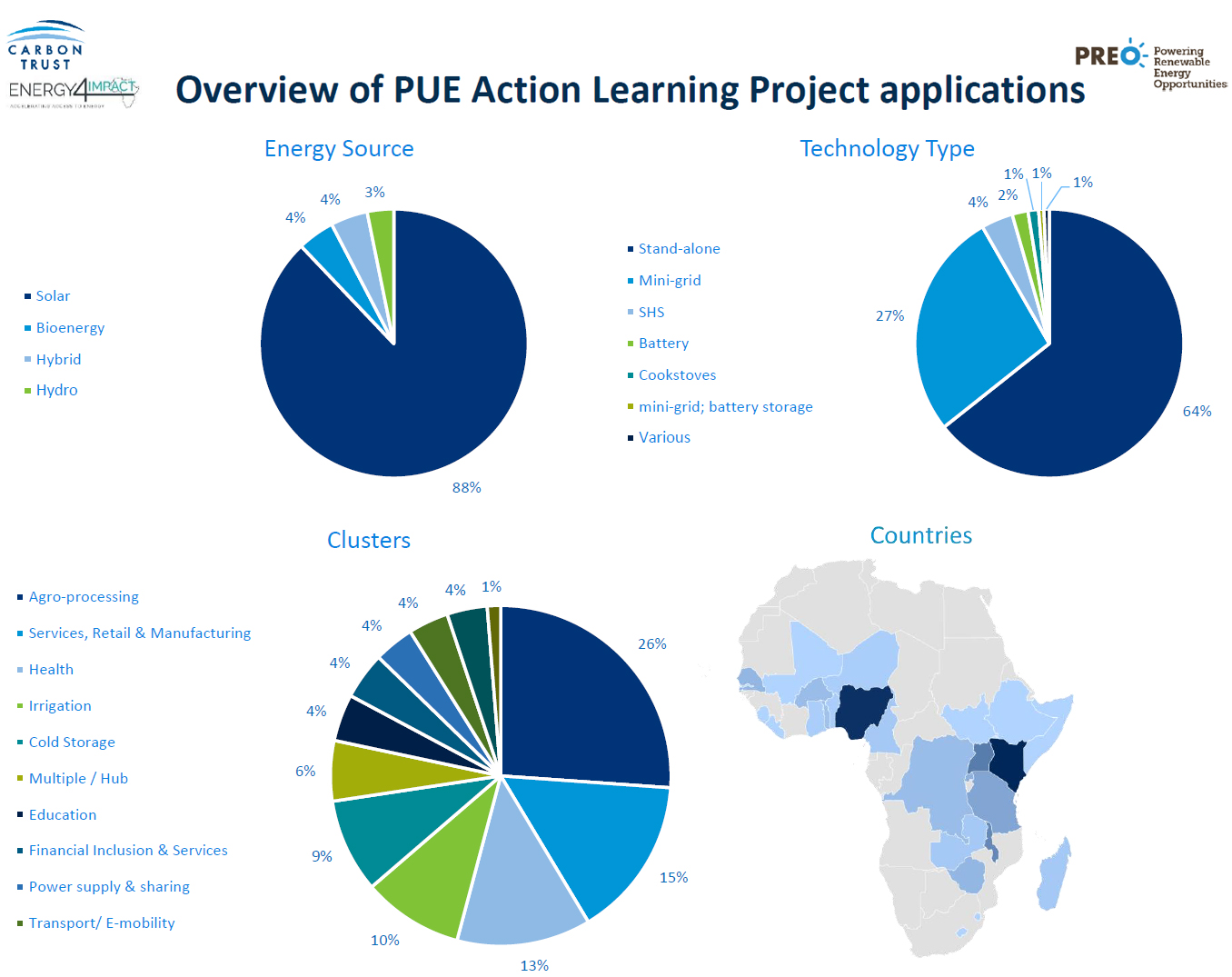PREO funding applications give insight into productive use of energy trends in sub-Saharan Africa
The Powering Renewable Energy Opportunities (PREO) programme has received 233 applications to its call for Action Learning Projects and Innovative Supply-chain Based Partnerships funding proposals.
PREO is supported by the IKEA Foundation and UK aid, and delivered by the Carbon Trust and Energy 4 Impact. The programme aims to boost productive electricity demand in off-grid areas of sub-Saharan Africa as a route to economic growth and job creation. Data collected from the applications provides an interesting snapshot of trends in the renewable energy market across the region.
Most notably, an overwhelming majority are seeking funding for solar energy sources (88%), powered by either stand-alone systems (64%) or mini-grids (27%). For businesses reliant on small to medium appliances, such larger power systems enable a higher consumption of energy, which is key to transforming rural economies.
Applications received spread across 10 productive use sectors which require energy access as an enabling factor. These are: agro-processing, irrigation, cold storage, retail & manufacturing, water, health, education, financial inclusion & services, telecommunications, power supply & sharing, and transport & e-mobility. The largest interest came from the agro-processing sector with a share of 26% addressing various rural value chains such as milling, drying, or oil pressing. Together, cold storage, irrigation and agro-processing take up 45% of all applications received, reflecting the importance of the agricultural sector which employs two third of the African work force.
Modern healthcare has also become increasingly vital during the COVID-19 pandemic so it is perhaps unsurprising that health (13%) is the third largest cluster within the pool of applicants. Whilst there is a geographical spread of applications across 29 countries, the bulk of the applications came from Nigeria (22%), Kenya (19%) and Uganda (10%). A majority of proposals are from applicants at the start-up stage of development (60%), which suggests funding is often needed to test productive use of energy concepts before businesses can get off the ground.
The lion’s share of the eligible 157 applications were from off-grid energy companies or power suppliers. However, the proposals received from non-energy companies, most commonly agribusinesses, are a promising sign that a wider range of private enterprises are becoming integrated into productive use and renewable energy initiatives.

